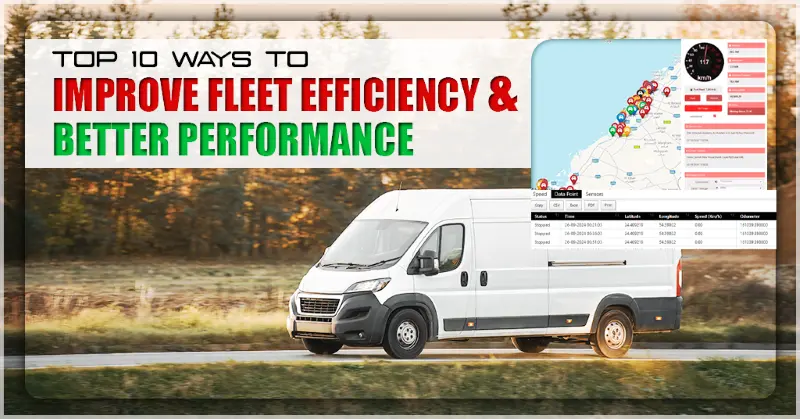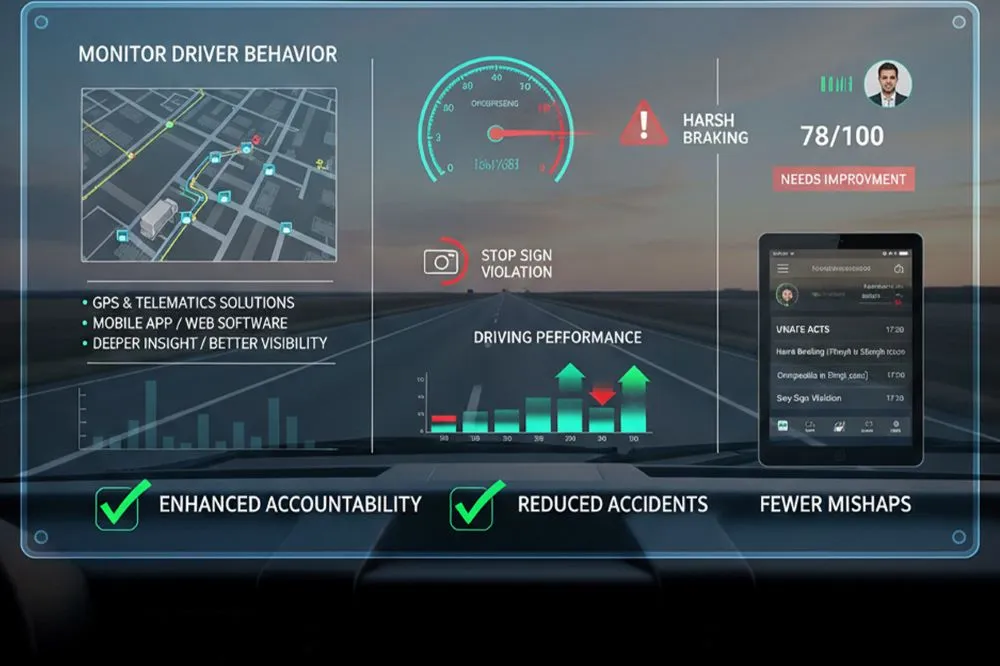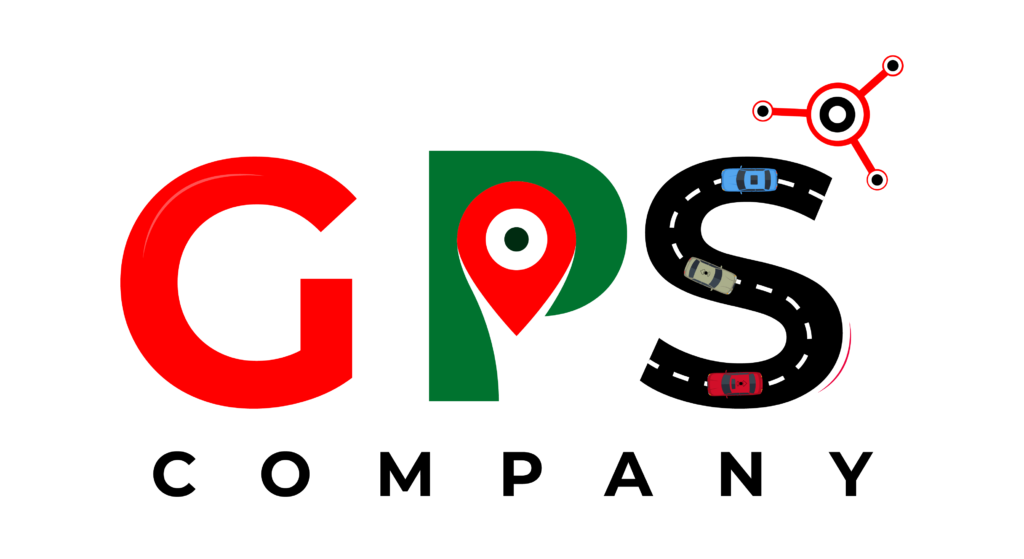Top 10 Ways To Improve Fleet Efficiency & Better Performance

Various challenges are faced by companies that have a fleet of vehicles in their daily operations. The challenges comprise theft, misuse, mechanical failure, tardiness, and so forth. Ultimately, these challenges cause adverse effects on the bottom line of the business, loss of revenue, increased downtime, as well as increased likelihood of theft. Thus, there is a necessity for credible and trusted solutions that would increase fleet efficiency, improve performance, and, eventually, yield more profits and reduce operation costs.
Fuel savings is not the only issue that fleet management deals with, but also in maximizing the ROI, productivity, and safety. Whether you are dealing with a fleet of vans, construction vehicles or a fleet of trucks, the increase in efficiency directly affects profits. In modern times, technologically advanced technologies, data-based planning, and efficient practices have become the norm in fleets in order to keep up with the competition. This manual includes all the ways of improving the efficiency of the fleet. As such, make the best decisions on your vehicles and ensure that your company grows on a greater plane than ever before.
Quwain, Sharjah, Ras Al Khaimah, and Fujairah to Abu Dhabi.
Best Strategies To Improve Fleet Effectiveness.
These are just but few steps that can be taken to enhance fleet performance and guarantee operational excellence.
1.Get Real-Time Tracking
Keeping up with the real-time features such as location, status, movement, and other whereabouts is useful in making decisions based on data. Getting real-time information is possible through an authentic GPS tracking solution. It gives different features and better visibility into your fleet operations. Such aspects as vehicle usage, fuel consumption, driving performance, idling time, and many more will be informed to you. Such openness is useful in making superior decisions and in minimizing uncertainties.
Increase Productivity & Lower Operational Cost!
Contact Us For GPS Tracker.
2. Use Route Optimization
You can optimize better and profitable routes by using route optimization software. Defining better routes will ensure customer satisfaction, timely deliveries, more work in less time, and much more. Sometimes, drivers mistakenly take long routes that affect business reputation and customers’ trust. Therefore, use route optimization software to define better routes and ensure timely delivery.
3.Monitor Driver Behaviour
Get GPS and telematics solutions with mobile app or web software support. It will give deeper insight and better visibility into the driving performance. By this, it makes it easier to keep track of the drivers and identify the unsafe acts of driving, like harsh braking, overspeeding, violation of stop signs, etc. This not only enhances the accountability of the driver; it also reduces the chances of accidents, mishaps or any other problems.

4.Reduce Vehicle Idle Time
The most common thing that is done by drivers is that the engine of the car remains on, and still, the car is not in motion. The consequences of such an act are severe for the companies dealing with fleet management on an everyday basis. It results in fuel and time wastage, which affects a business’s bottom line. These acts of drivers result in increased fuel expenses and risks to vehicle health. To address these problems, you are supposed to have real-time insight to hold drivers responsible for their actions.
5.Adopt Preventive Maintenance
An effective and trusted telematics system provides automatic predictive maintenance-related alerts (oil change and tyre pressure). These predictive alerts ensure the vehicle is in good condition. It also enhances safety and vehicle lifespan, which ultimately results in smoother fleet operations and reduced maintenance costs.
6.Optimize Fuel Management
Taking long and unplanned routes results in more fuel consumption, delayed deliveries, unexpected incidents, and much more. More fuel consumption means more expenses and company with no benefit. Therefore, the existence of the fuel sensors ensures that the mileage is not the only part that is known, but also the amount of petrol that has been utilized, when the vehicle was last filled, and the distance covered. The whole data is thoroughly followed and it is utilized in making improved decisions, eliminating fuel wastage, and enhancing the overall productivity.
7.Improve Load Management
Most of the time, drivers are habituated to overloading, which affects a vehicle’s health, damages engines, tyres, and suspension. Not only this, but underloading also results in fuel wastage and reduces productivity. Therefore, a balanced load management is mandatory for profitable fleet management and efficiency. Balanced load management ensures optimal fuel usage, better stability, and increased safety. It also reduces fuel consumption, reduces wear and tear, and fewer breakdowns.
8.Use Telematics Reporting
The approach of analyzing patterns and trends has been recommended as a primary means of detecting driver behavior and other critical data. With these reports, you will be able to access information on fuel consumption, the chosen routes, the total miles covered, maintenance, deliveries, and so forth. You just need to perform the data analysis to your benefit and increase the productivity of the fleet. The data helps in the liveries of which routes are long and not beneficial, which driver is suitable, and which vehicle needs maintenance. Consequently, it will increase the whole fleet’s productivity and operational excellence.
9.Train Drivers Regularly
Identifying the driving pattern will allow you to train the drivers who are habitual of risky driving. You can also assign the tasks to more responsible drivers who can complete the tasks on time and responsibly. Economical driver training enhances fuel efficiency and reduces wear.
10.Reduce Empty Miles
The foremost method for enhancing fleet efficiency and minimising operational costs is through the cutting of empty miles. Often, vehicles arrive back at base without any shipment onboard, and this ultimately leads to the wasting of fuel, labour costs, and equipment wear. The application of more efficient route planning, along with the collaborating of loads between trips, would result in higher vehicle usage and lower fuel consumption.
Final Thoughts!
Fleet efficiency improvement is working smarter and not harder. Intelligent technology, maintenance discipline, and making decisions on the basis of verifiable information are all aspects of transforming the minutest of modifications into major performance gains. In addition to it, idle time reduction, minimal empty miles, training drivers, and real-time information can assist fleets in decreasing expenses and augmenting productivity, as well as to be safer in their work. In the end, the best fleet is the fleet that, in addition to saving money, is quicker, more performance-oriented, and makes your company competitive in an environment where companies are changing so fast.

Avoid Abu Dhabi Traffic Fines for Vehicles Operating Between Emirates
Protect The Vehicle’s Operating Between Emirates From Abu Dhabi Traffic Fines Do you own or operate freight or

Explore The Top Trends In Fleet Management Technology Shaping 2026!
Explore The Top Trends In Fleet Management Technology Shaping 2026! Do you know some top trends in fleet
Why Should You Consider Students Safety With GPS Tracking?
Students safety with GPS tracking has gained popularity in recent years. In today’s busy schedule, parents hardly get

